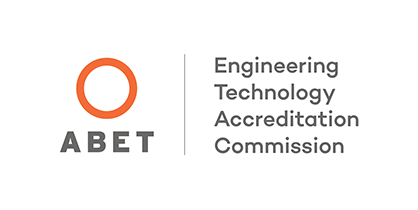CT State Community College Catalog 2023-2024
- New students enrolling for the first time in Fall 2023 will begin as students of Connecticut State Community College under this catalog.
- Continuing students from one of the 12 community colleges will be transitioned into a CT State program in this catalog as of the start of the Fall 2023 term.
- The policies, courses and programs described are applicable as of the Fall 2023 term and may be updated as circumstances require.
|
CT State Community College’s Mechanical Engineering Technology program is accredited by the Engineering Technology Accreditation Commission of ABET, http://www.abet.org.
Mechanical engineering deals with POWER, and with the machinery used to convert power to useful work. The mechanical engineering technician is a practically-oriented member of the engineering team which applies existing technology to the solution of engineering problems. The mechanical engineering technician designs machines and processes used to generate and apply power to useful purposes. For example, a mechanical engineering technician may assist in the design of a power plant, testing of a space shuttle, manufacturing of a nuclear submarine, or building of an aircraft carrier.
The CT State Community College Mechanical Engineering Technology (MET) program combines theory with laboratory experience. Subjects such as mathematics, physics, engineering mechanics, fluid mechanics, materials of engineering, thermodynamics, and mechanical design are included within the curriculum. After the theory is taught, it is applied to practical situations in the laboratories, which are supervised by professional engineers. Students learn how to set up and conduct an experiment, to extract and analyze engineering data, and to solve problems which require the application of engineering principles.
Learning Outcomes
I. Program Educational Objectives (PEOs)
Graduates will:
1. possess the educational background to do one or both of the following:
- employment in Mechanical Engineering Technologyor another related field.
- continue studies toward a bachelor’s degree in Mechanical Engineering Technology or other related field.
2. perform effectively individually or as a member of a team working on Mechanical Engineering projects in industry or academia.
3. act with the high professional, moral and ethical standards expected of a Mechanical Engineering Technician.
II. Student Outcomes
After successful completion of the program, students will demonstrate:
1. an ability to apply principles of mathematics, science,and technology to solve well-defined engineering problems.
2. an ability to formulate design solutions to well-defined technical problems.
3. an ability to apply written, oral and graphical communication techniques.
4. an ability to conduct expereiments, test theories, and analyze and interpret results.
5. An ability to function effectively in teams.
As a result of the training and preparation provided, the Mechanical Engineering Technology student is ready to be employed by industry or to continue their education towards a bachelor’s degree upon graduation. Many students do both - they work in industry while they continue their education.
The blend of ‘hands-on’ experience with theoretical background, the applications to current technology, and the individual initiative that the student develops, make our graduates very marketable in the workforce, and successful in their pursuit of their bachelor’s degree. Graduates of the Mechanical Engineering Technology Program are successfully employed in many different industries in such positions as laboratory technicians, field service technicians, design engineering technicians, application engineering technicians, and plant engineering technicians. Our alumni have graduated with a bachelor’s degree from Central Connecticut State University, University of New Haven, Fairfield University and other local engineering and engineering technology programs.
